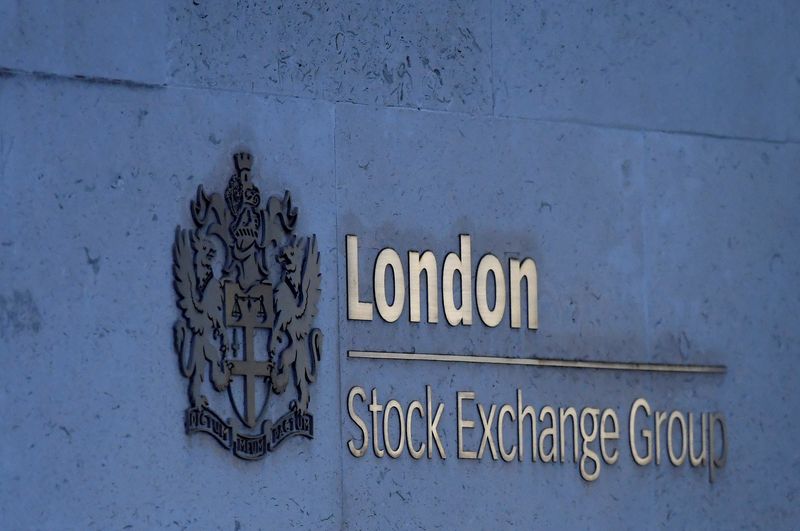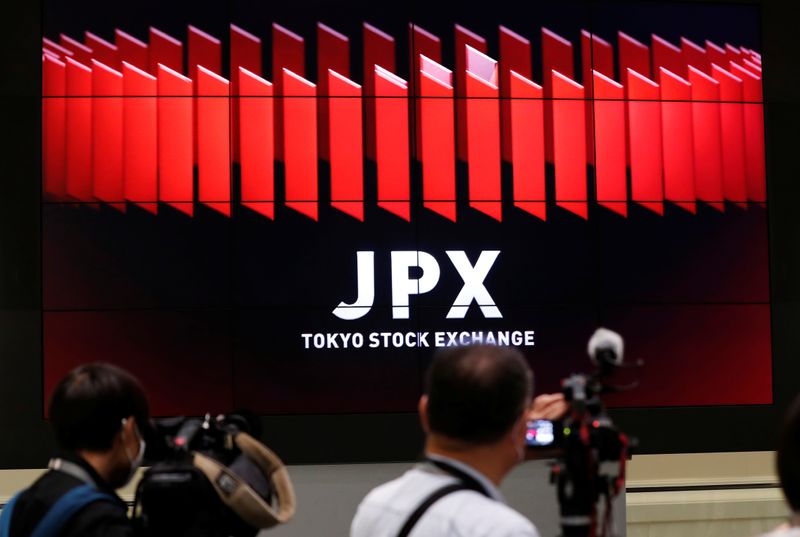By Simon Jessop
LONDON (Reuters) - Global stocks ground higher while oil ebbed on Thursday as investors diverged over whether to bet on economic recovery in the United States and other developed markets or worry about a surge in COVID-19 cases in India and elsewhere.
With vaccination rates rising and pandemic-weary citizens embracing more freedoms to drive growth in some major economies, MSCI's broadest global gauge of stocks was up 0.2% in early European deals, trading back within 1% of its all-time closing high after a recent mini sell-off.
With the European Central Bank holding a policy meeting, Europe's top indexes posted stronger gains. The broad STOXX Europe 600 was up 0.5%, also bolstered by upbeat earnings from Nestle and Volvo.
"Markets are currently a tale of three Vs - standing at a crossroads of virus evolution, vaccination rates and v-shaped recoveries," Societe General cross-asset strategist Alain Bokobza wrote in a note to clients.
"Our overall stance is unchanged, i.e., no exuberance yet. Credit risk remains under control, so risk assets should continue to ride high... Stick to risk for now."
The buoyant start to the European day followed overnight gains in Asia, where Japan's Nikkei 225 rose 2.4% and MSCI's broadest index of Asia-Pacific shares outside Japan rose 0.3%.
U.S. stock futures pointed to a flat open on Wall Street, albeit within touching distance of a record high.
Despite stocks being generally upbeat, oil - another asset geared to perceptions of economic growth - fell after a resurgence of COVID-19 cases in India and Japan, and a recent surprise stock build in the United States, weighed on sentiment.
U.S. crude futures extended their intraday dip and were down 0.7% at $60.91 per barrel while European benchmark Brent was down 0.7% at $64.84.
"An unexpected and high increase in U.S. inventories fuelled concerns over weak demand which came against expectations for a strong recovery in demand," said Satoru Yoshida, a commodity analyst with Rakuten Securities.
"What is hurting market sentiment is also the fact that the COVID-19 pandemic is spreading again at a fast pace in India and Japan."
U.S. Treasury yields stayed depressed but moved off intra-day lows, with the yield on benchmark 10-year notes at 1.5556% on Thursday.
Germany's 10-year government bond yield, the benchmark of the euro area also dipped and was last trading at -0.27%.
In currency markets, the dollar reversed early losses to trade up 0.1% against a basket of major peers.
The euro was flat at $1.202, not far from its strongest since March 3. The common currency has gained as much as 3% against the dollar since the start of April.
While the euro is expected to be little moved by the ECB meeting, with no change expected, traders will be looking out for positive words about the state of the economy and any hints that its bond purchases could be tapered.
"The European Central Bank isn’t expected to ruffle any feathers this Thursday, with analysts predicting that it will be another steady session from Christine Lagarde and Co," said Connor Campbell, financial analyst at Spreadex.
"But with a while until the next meeting – the central bank skips May – the ECB could use this opportunity to sharpen its forward guidance. There are also hawks lurking among the doves, meaning the get-together may not go as smoothly as forecast."
U.S. Federal Reserve and Bank of Japan meetings follow next week.

Against that backdrop, spot gold steadied near a two-month high and within touching distance of $1,800 an ounce. It last traded at $1,792.8 an ounce.
